
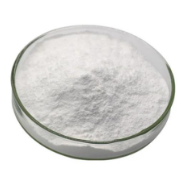
Name: Sodium bicarbonate CAS No.: 144-55-8 Appearance: White powder or opaque monoclinic system fine crystals Molecular formula: CHNaO3 Molecular Weight: 84.01 Melting point:>300 °C(lit.) PACKAGE:25KG/BAG
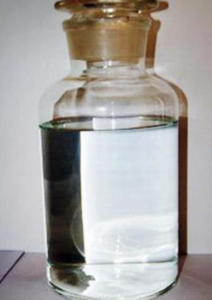
Name: Dichroromethylvinylsilane CAS number: 124-70-9 Molecular formula: C3H6Cl2Si Molecular weight: 141.07 EINECS number: 204-710-3 Mol file: 124-70-9.mol
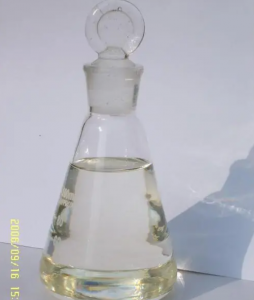
Name: Vinyltrimethylsilane CAS number: 754-05-2 Molecular formula: C5H12Si Molecular weight: 100.23 EINECS number: 212-042-9 Mol file: 754-05-2.mol
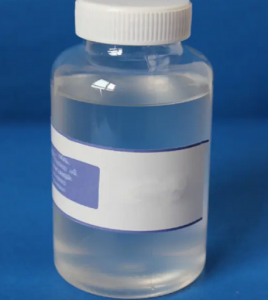
Name: Ethoxydimethylvinylsilane CAS number: 5356-83-2 Molecular formula: C6H14OSi Molecular weight: 130.26 EINECS number: 226-341-7 Mol file: 5356-83-2.mol
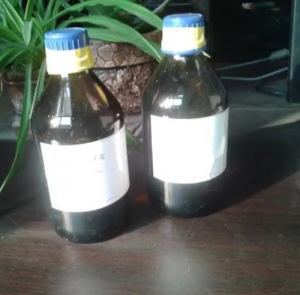
Name: CHLORODIMETHYLPINYLSILANE CAS number: 1719-58-0 Molecular formula: C4H9ClSi Molecular weight: 120.65 EINECS number: 217-007-1 Mol file: 1719-58-0.mol
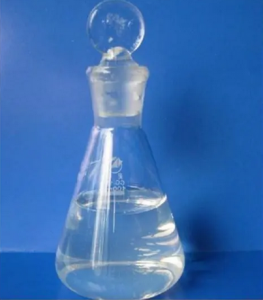
Name: 1,1,3,3-TETRAMETHYL-1,3-DIVINYLDISILAZANE CAS number: 7691-02-3 Molecular formula: C8H19NSi2 Molecular weight: 185.41 EINECS number: 231-701-1 Mol file: 7691-02-3.mol

Dear Customer, We would like to take this opportunity to thank you for your kind support all this while. Please kindly be advised that our company will beclosed from JAN 26th~ Feb 04th , in observance...
Insects can be both helpful and harmful to farmers growing crops. In the case of the highly invasive Fall Armyworm, they’re devastating and destructive. With no effective natural predators, this pest rapidly reproduces and causes significant crop damage, reducing the yields needed to meet a growing demand for food, fuel and fiber.
While the Fall Armyworm is commonly found in the U.S. and is a prominent pest in Brazil. It is migrating and taking its destructive nature with it. In 2016, Fall Armyworm was first spotted in West Africa and immediately caused major concerns about food security. Since then, the pest has destroyed maize—a staple food for over 300 million people—in over 30 African countries.
“Farmers in sub-Saharan Africa heavily rely on
maize and produce it for direct consumption,” said Mark Edge. He is the
Director of Collaboration for Developing Countries at Monsanto. “As Fall
Armyworm becomes more prevalent and established, a major food source is
jeopardized.”
Genetically modified (GM) crops do not yet have
regulatory approval in most African countries. To promote understanding
and acceptance of a crop that could benefit so many farmers, Monsanto
collaborates in a public-private partnership that works on sharing a
genetically modified crop called Bt maize for smallholder farmers in
Africa.
Bacillus thuringiensis (Bt) is a naturally occurring soil bacterium. It can be used to control insects and has been used by organic farmers to control caterpillars such as Fall Armyworm. Many global agencies such as World Health Organization (WHO) have also used Bt to control mosquitoes for decades. Through biotechnology, scientists can express Bt proteins in crops, helping farmers protect against insect damage and destruction.
When the targeted insect eats the plant, the Bt proteins bind to specific receptors in the insect’s stomach, which ultimately kills the pest. Bt is not harmful to humans, other mammals, birds, fish, or beneficial insects, because their stomachs don’t have the same receptors and, in the case of humans, they simply break down the Bt protein into harmless amino acids. The use of Bt crops reduces the need for pesticides, helping farmers strategically and efficiently manage and use inputs. With the help of Bt maize, farmers in Africa could protect their crops from damage from Fall Armyworm and other invasive pests.
“Bt maize was introduced over 20 years ago,
and has now been in South Africa for 15 years,” shared Edge. “However,
Bt as an applied biological control has been around for over 50 years.
And it has been used around the world by farmers and gardeners as an
insect control product.”
This technology has revolutionized insect
pest management in the U.S., Brazil, Argentina and many other countries.
It has proven to be a safe, effective way to combat pests and help
ensure bountiful harvests. “When farmers plant their crop, they start
with hopes to reap the full genetic potential in the seed they
purchased,” said Edge. “Bt maize helps protect that genetic potential
and minimizes the negative impact of insects like Fall Armyworm. It
would be an excellent addition to the crop protection toolbox for
farmers in Africa.”
Anhui Sinotech Industrial Co.,Ltd is a professional manufacturer of Insecticide Products, Organic Insecticide and Natural Insecticide,but also a supplier of various agricultural additives, can contact us at any time
 online service
online service +8613866722531
+8613866722531 pweiping@techemi.com
pweiping@techemi.com pweiping
pweiping +8613866722531
+8613866722531